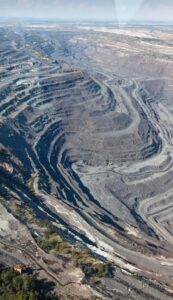Choosing the Right Mining Consultant
The task of choosing a mining consultant can be challenging if you don’t have experience navigating the selection process. Frequently, the management at a mine site chooses a consultant based on price as the primary determining factor. Naturally, price is always an important consideration, but it’s also the easiest to quantify. However, it’s not a predictor of the success of the consultant’s work. Too often, the selection of a mining consultant should be driven more by the expected quality of the product and less by the cost to deliver it.
Cost as a factor
Due to corporate purchasing policies, when selecting a consultant, the cost estimated to complete the work is often weighted heavily in the process. There are a few reasons for this. First, cost is a readily available number that is an objective, measurable data point. This adds necessary transparency to the selection process. Price points require little effort by the procurement team to compare and make a decision. If the assumption is that each consulting option will deliver the same quality of work, it’s an easy decision to minimize costs.
However, using minimizing costs as a motivator and choosing a price point as the sole determining factor to select a consultant can end up backfiring for many companies. The differences in the costs between consultants are usually marginal in comparison to the difference in value between the right and wrong consulting group.
Consider a site looking to increase the productivity of a load & haul fleet that costs $50M per year to operate. Each percentage point of improvement is a savings of $500,000. If you consider the likelihood of success of a specialized, experienced and perhaps more expensive group, the potential savings mitigate the cost differences between consultants.
Choosing the wrong consultant can often lead to higher costs in the long run as well. Aside from cleaning up a mediocre job, companies that hire the wrong consultant also find themselves ill-equipped to handle roadblocks that come about once the consultant has left. In the worst situations, companies find themselves in a position where money is wasted, resources have been exhausted, and no meaningful outcome was produced. They’ve missed an opportunity to find significant value in their operation.
How to choose the right consultant
How can you avoid making these mistakes? Start by taking more time upfront to understand each consultant’s general approach to problem-solving and how they would look at your particular issue. Ask questions to understand their culture and values and how they will fit with yours.
When you hire a consultant based on the person rather than the cost, there is a greater potential for a partnership that adds value. This partnership will result in better alignment, improved communication and collaboration, and ultimately, better solutions.
Here are some questions to consider as you navigate the process of hiring a consultant:
- Does the consultant’s vision for change align with yours?
- Does the consultant’s approach to problem-solving align with your organization? Are they systematic and methodical, which may take more time to work through, or do they take an approach that results in a faster solution but use a less robust process?
- Does the structure of the consulting organization align with your team’s structure?
- Does the consultant have the specific experience and knowledge needed for the particular problem you are looking to solve?
- These questions are focused on choosing a person and value. Choices based on cultural fit, vision match, approach to problem and relevant experience result in far better outcomes for the client.

To learn more about the consulting services that Outliers offer and the values that we hold, visit our website.
Connect with an Outlier
Subscribe to our monthly newsletter!
All Rights Reserved
